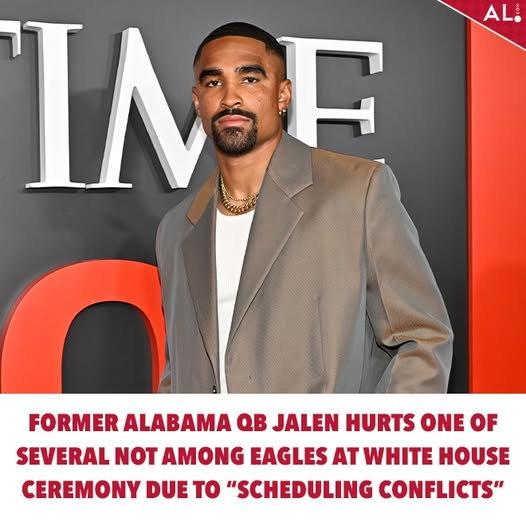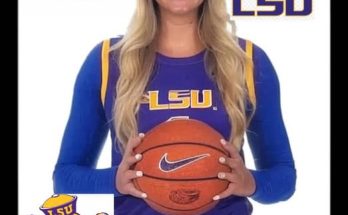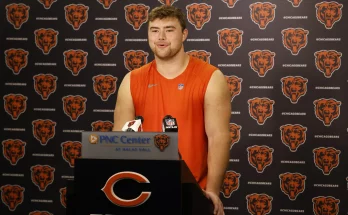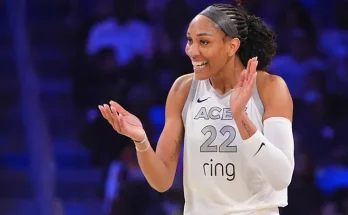Philadelphia Eagles quarterback Jalen Hurts will not be among the players joining the team at the White House on Monday to celebrate the franchise’s 2024 Super Bowl championship. NBC News first reported that Hurts is one of several team members who will miss the scheduled visit with President Donald Trump. According to a statement released by the White House, the players absent from the event cited “scheduling conflicts.”
Hurts, who played a pivotal role in leading the Eagles to victory in Super Bowl LVIII, has not publicly commented on the decision or the nature of his scheduling conflict. The absence of the team’s star quarterback, however, has drawn attention and speculation, particularly given the historical and political context of past White House visits involving championship teams.
The Philadelphia Eagles defeated the Kansas City Chiefs in a thrilling 31-27 contest to clinch the NFL title in February. Hurts was named Super Bowl MVP for his performance, capping off a season that saw him throw for over 4,000 yards and rush for 15 touchdowns, further solidifying his status as one of the league’s premier dual-threat quarterbacks.
Traditionally, championship-winning teams in American professional sports are invited to the White House to be honored by the sitting president—a custom that has long stood as a symbol of national unity and recognition of athletic excellence. But in recent years, that tradition has occasionally been marred by political tensions, player protests, and declining attendance among athletes for personal or ideological reasons.
In the case of the 2024 Eagles, while the majority of the team is still expected to attend Monday’s ceremony, the absence of Hurts and a number of unnamed players has led to questions about whether the “scheduling conflict” explanation tells the full story.
The White House released a short statement on Sunday evening addressing the absences: “While we look forward to celebrating the Eagles’ tremendous 2024 NFL Championship win with many members of the team, we understand that some players have scheduling conflicts and are unable to attend. We wish them continued success both on and off the field.”
For President Trump, who returned to the White House in January after a narrow election victory, the event is a chance to publicly align himself with one of the NFL’s most high-profile franchises and an MVP-winning quarterback. But Hurts’ decision not to attend could be seen as symbolic, particularly in light of past tensions between Trump and professional athletes, including his criticism of players who kneeled during the national anthem in protest of racial injustice and police brutality.
In 2018, during Trump’s first term, the Eagles were again invited to the White House after winning Super Bowl LII. That visit was canceled altogether after multiple players expressed hesitation or outright refusal to attend. The White House at the time blamed a “small delegation” of expected attendees and instead held a “Celebration of America” without the team present. Notably, that 2018 championship squad also featured a different starting quarterback and coaching staff, but the franchise has remained politically conscious and community-focused over the years.
Hurts, 26, has previously spoken on issues related to social justice and has used his platform to support educational and philanthropic initiatives. In 2020, he was among the many college and professional athletes who publicly advocated for voting rights and equity during the height of the Black Lives Matter movement. Since entering the NFL, he has often emphasized leadership, responsibility, and remaining focused on football—though he has not shied away from causes close to his heart.
Given that context, some fans and political observers are questioning whether Hurts’ absence is less about logistics and more a quiet decision to abstain from the ceremony for personal or political reasons. While no confirmation has come directly from Hurts, the speculation has stirred online debate among Eagles fans and across the sports media landscape.
Some have defended the quarterback’s decision, arguing that players should not be expected to attend a White House ceremony if it conflicts with their values or offseason obligations. Others suggest that skipping such events can come across as disrespectful to the office of the presidency or to the fans who take pride in seeing their team recognized on a national stage.
Still, the NFL offseason is typically a time of intense training, travel, endorsement obligations, and personal commitments. It is not uncommon for players to miss White House visits due to prior engagements. However, when the player in question is the face of the franchise and the Super Bowl MVP, his absence tends to make headlines.
Several of Hurts’ teammates, including key members of the offensive line and coaching staff, are still expected to attend the ceremony, which will take place on the White House lawn. President Trump is anticipated to deliver remarks highlighting the team’s journey to the championship, their resilience throughout the season, and the leadership of head coach Nick Sirianni. While the focus will likely remain celebratory, the absence of Hurts may loom large during the proceedings.
For the Eagles organization, the decision to send a partial contingent of players reflects the team’s effort to balance tradition with personal autonomy. In a statement released Monday morning, the team said: “The Philadelphia Eagles are proud to be recognized at the White House for their Super Bowl victory. While not all players are able to attend due to individual schedules, we are honored by the invitation and look forward to representing our fans and city with pride.”
The NFL has seen a growing number of athletes use their platforms to express their views and make statements, both subtle and explicit. From silent protests during anthems to public endorsements of candidates and causes, the modern professional athlete exists in a space where sports, culture, and politics frequently intersect.
Hurts, widely respected around the league for his poise, discipline, and leadership, has largely avoided controversy during his NFL career. He has focused primarily on football, with a few exceptions that underscore his thoughtful approach to activism. His supporters point to this track record as evidence that his decision was likely measured and intentional, not performative.
Meanwhile, critics of the move—particularly among conservative media outlets—have begun to characterize the absence as politically motivated and unpatriotic. However, no evidence has emerged to support the idea that Hurts’ decision was politically charged. In fact, without any public statement from the quarterback, the interpretation of his absence remains speculative.
The 2024 NFL season was one of Hurts’ most successful campaigns yet, with analysts and fans alike praising his continued development as both a passer and team leader. After falling just short in the 2023 playoffs, Hurts led the Eagles on a redemption arc that culminated in their second Super Bowl win in seven years. His combination of athleticism, intelligence, and resolve has made him one of the most marketable and influential players in the sport today.
Whether or not Hurts will eventually speak on the matter remains to be seen. If history is any indicator, he may let his actions—and his performance on the field—speak for themselves. For now, his decision to skip the White House visit has added another layer of intrigue to the ongoing conversation about sports and politics in America.
As the Eagles prepare for the 2025 NFL season, attention will soon return to offseason training, roster moves, and the quest to defend their title. But the lingering absence of their star quarterback at the White House could remain a talking point for weeks to come.
For fans and political pundits alike, the message—or lack thereof—behind the “scheduling conflict” will continue to invite interpretation. What is certain, however, is that Jalen Hurts remains a central figure not only in Philadelphia sports but in the evolving landscape of athlete identity and influence in the United States.



